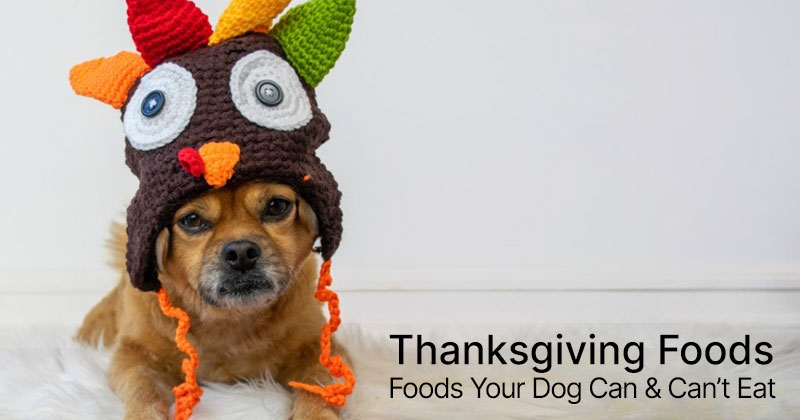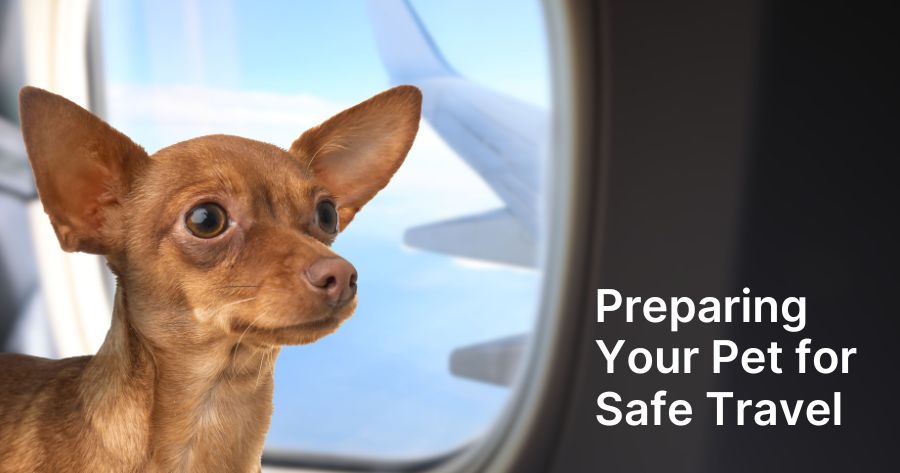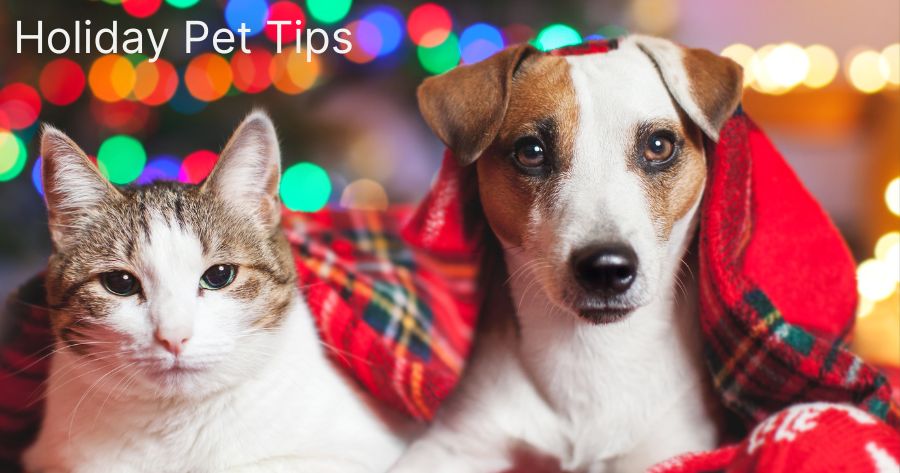
As the holiday season approaches, families gather to celebrate Thanksgiving with delicious meals and cherished traditions. However, while we indulge in our favorite dishes, it's important to be mindful of what we share with our dogs. Not all Thanksgiving foods are safe for your furry family member, and some can pose serious health risks. In this guide, we will explore Thanksgiving foods your dog can and can't eat, helping you keep your pup safe during the festivities.
While some Thanksgiving foods can be harmful, there are a few items you can safely share with your dog. Here are some options that can make for a safe holiday treat:
Turkey is the centerpiece of many Thanksgiving dinners, and in its plain, cooked form, it can be a good source of protein for your dog. Be sure to remove any skin, fat, and bones, as these can cause digestive issues or even lead to more serious health problems. Turkey skin is often seasoned with spices and oils that are not safe for dogs, while bones can splinter, causing choking or internal injuries.
Sweet potatoes are rich in fiber and vitamins such as A and C, which can benefit your dog's health. If you're preparing sweet potatoes for your dog, make sure they are plain and not seasoned with sugar, butter, or spices like cinnamon and nutmeg, which can be harmful. Avoid candied versions or casseroles topped with marshmallows.
Green beans are low in calories and packed with vitamins and minerals. They are safe for dogs in their plain form, either steamed or raw. Be cautious of green bean casseroles, though, as these often contain ingredients like onions, cream, and spices that can be toxic to your dog.
Pumpkin is a popular Thanksgiving ingredient and a great source of fiber for dogs. Plain canned pumpkin or cooked pumpkin (without added sugars, spices, or butter) can be a healthy treat for your pup. However, avoid pumpkin pie or spiced pumpkin mixes, as these contain harmful ingredients like nutmeg.
Fresh, plain apples can be a crunchy, nutritious snack for dogs. Apples provide fiber, vitamin A, and vitamin C, all of which can be beneficial for your dog's health. Be sure to remove the seeds and core, as apple seeds contain cyanide, which is toxic to dogs if ingested in large quantities.
While sharing a few safe Thanksgiving treats is fine, many traditional holiday foods can be dangerous for dogs. Here are some common Thanksgiving dishes you should avoid giving your dog:
Stuffing is a Thanksgiving staple, but it is not safe for dogs. Most stuffing recipes contain ingredients like onions, garlic, and various seasonings, which are toxic to dogs. Even small amounts of these ingredients can cause digestive upset or more serious health issues like anemia.
As mentioned earlier, while plain turkey meat is safe for dogs, turkey bones and skin are not. Turkey bones can splinter easily, leading to choking hazards, mouth injuries, or even internal damage. The skin, often covered in seasonings and oils, can upset your dog's stomach or lead to more severe conditions like pancreatitis.
Potatoes in their plain form are safe for dogs, but most mashed potato dishes are made with butter, milk, and salt, which can cause digestive issues for your dog. High-fat ingredients like butter can lead to stomach upset or even pancreatitis in dogs. If you want to share mashed potatoes, make sure they are plain and free of any added ingredients.
Gravy is typically high in fat and often contains onions, garlic, and spices, making it unsafe for dogs. High-fat foods can cause stomach upset and lead to more serious health problems like pancreatitis. It's best to avoid giving your dog any gravy, no matter how tempting it may be.
While cranberries themselves are safe for dogs in small amounts, cranberry sauce is often loaded with sugar and may contain other ingredients like grapes or raisins, which are toxic to dogs. The high sugar content can also upset your dog's stomach or contribute to unhealthy weight gain if consumed in large amounts.
Thanksgiving desserts are often loaded with sugar, spices, and ingredients that are harmful to dogs. It's best to keep desserts out of your dog's reach to prevent any potential health risks.
Chocolate contains theobromine and caffeine, both of which can cause serious health issues like vomiting, diarrhea, increased heart rate, seizures, or even death if ingested in large quantities. Keep all chocolate desserts, including pies, cakes, and cookies, away from your dog.
Most pies and sweets are filled with ingredients that are harmful to dogs, such as sugar, butter, nutmeg, and chocolate. Even pies that don’t contain chocolate, like apple or pecan pie, may have high sugar and fat content, making them unsafe for dogs.
Grapes and raisins, often found in holiday desserts, are extremely toxic to dogs and can cause kidney failure, even in small amounts. If you’re serving any dishes that contain grapes or raisins, be sure to keep them far from your dog’s reach.
Now that you know which Thanksgiving foods your dog can and can't eat, it's important to take steps to prevent your dog from accidentally consuming something harmful. Here are some tips to keep your dog safe:
Thanksgiving is a time for celebration, but by staying informed about the foods your dog can and can't eat, you can make sure the holiday remains safe and enjoyable for everyone in your family, including your pets. In the event that your dog does eat something harmful, don’t panic. Some reactions may be mild, but others can be serious and require immediate attention.
If your dog has consumed a dangerous food, such as chocolate or onions, or if you’re unsure about what your dog ingested, it’s in your dog’s best interest to seek veterinary care promptly. The team at Skyline Veterinary Clinic can provide guidance and recommend the appropriate steps based on your dog’s condition. Call (402) 933-6800 or request an appointment if you suspect your dog has eaten something they shouldn’t.


